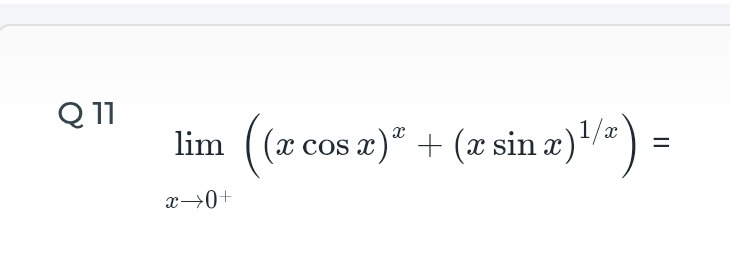Question
Question: $\lim_{x \to 0^+} ((x \cos x)^x + (x \sin x)^{1/x}) =$...
limx→0+((xcosx)x+(xsinx)1/x)=

Answer
1
Explanation
Solution
The limit is evaluated by splitting it into two parts: L1=limx→0+(xcosx)x L2=limx→0+(xsinx)1/x For L1, let y=(xcosx)x. Then lny=xln(xcosx)=xlnx+xln(cosx). Using L'Hopital's rule for limx→0+xlnx=limx→0+1/xlnx=limx→0+−1/x21/x=0. Also, limx→0+xln(cosx)=0⋅ln(1)=0. So, limx→0+lny=0, which means L1=e0=1.
For L2, let z=(xsinx)1/x. Then lnz=x1ln(xsinx)=xlnx+ln(sinx). As x→0+, the numerator lnx+ln(sinx)→−∞ and the denominator x→0+. Thus, limx→0+lnz=−∞, which means L2=e−∞=0.
The total limit is L1+L2=1+0=1.
